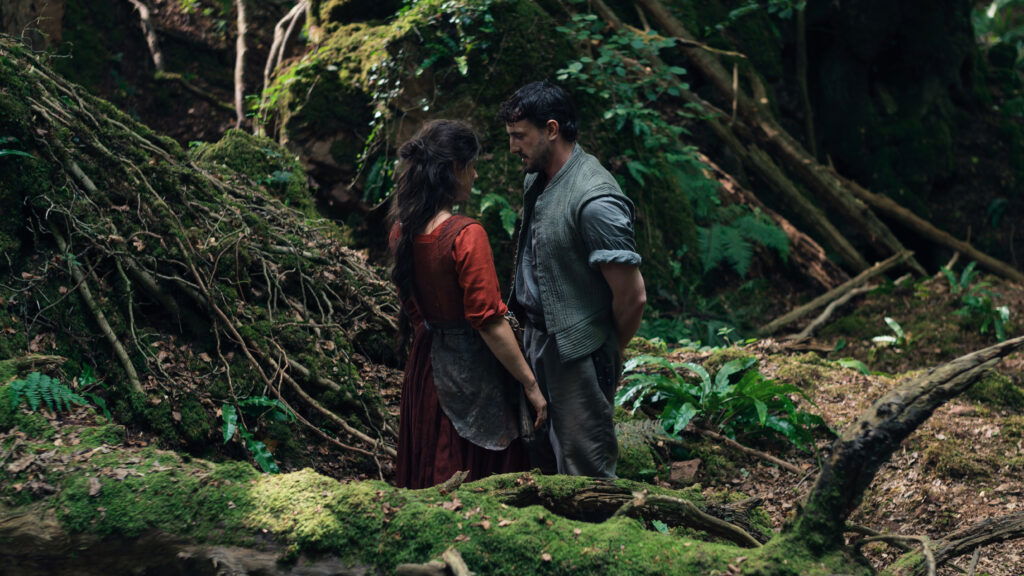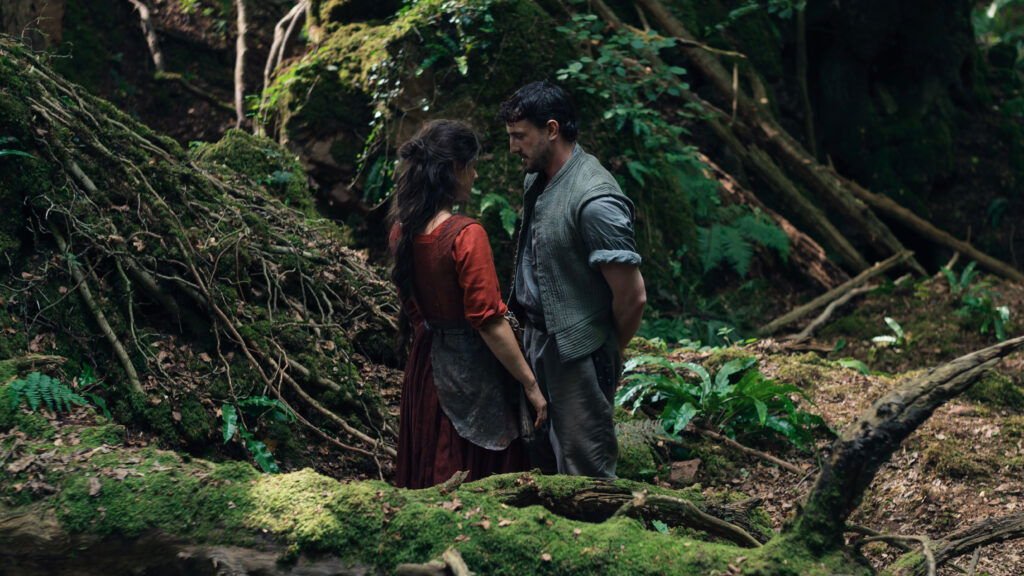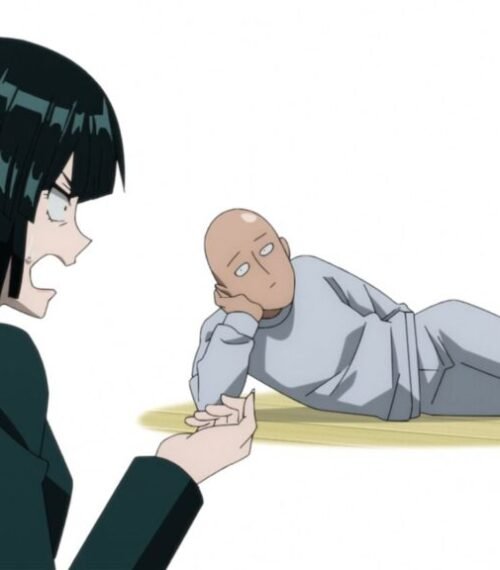First off, I must confess: I’m not the biggest William Shakespeare enthusiast. To me, his work often exists in a classicist and, at times, impenetrable universe that rarely excites me. However, there are filmmakers whose name alone is enough to generate anticipation. Chloé Zhao (Eternals), with her sensitivity to human nature and her visual mastery, is one such artist. Adding two of the most fascinating actors working today, Jessie Buckley (The Lost Daughter) and Paul Mescal (Aftersun), immediately propelled Hamnet to the top of my most anticipated festival films.
Co-written by Zhao and Maggie O’Farrell (author of the original novel), the movie focuses on the intense romance and marriage between the young playwright William Shakespeare (Mescal) and his wife Agnes (Buckley). The narrative explores the family’s life in Stratford-upon-Avon and the impact William’s developing career has on their domestic life, culminating in an event that profoundly shakes their union.
Hamnet review

Zhao’s adaptation is, unequivocally, a slow-burn that demands patience and perhaps even faith from the audience. The first half is dedicated to establishing the rustic yet passionate life of the young couple and their growing family, but it does so at a contemplative pace that, midway through it, might lead one to question its effectiveness. Are we connecting enough with these characters? Are we invested in their story? It’s a slow setup, focused on small moments of intimacy and the construction of Agnes as an almost mystical, grounded figure, in contrast to the dreamy, often absent William.
The genius of the approach, however, lies precisely in its deliberate slowness. Unlike a historical epic that rushes toward the central event, Hamnet silently invests in the everyday. When the inevitable tragedy begins to unfold, it hits with such an overwhelming emotional impact that we realize the connection was established after all: the Shakespeare family’s grief becomes palpable and real. What seemed like an efficient yet perhaps cold pacing proves to be an essential preparation for the explosion of suffering that follows, turning the film into a visceral experience. From this point on, the story descends into progressive emotional darkness.
The suffering is portrayed relentlessly, with moments of shocking anguish and uncomfortable close-ups that force the viewer to confront the worst kind of pain on earth — those who know, know. In this descent into emotional hell, Buckley delivers a performance that will hardly be matched this year — it would be one of the century’s biggest shocks if she isn’t even nominated for an Oscar. Her Agnes is a force of nature, a woman with almost shamanic wisdom who, faced with grief, is reduced to her most raw and physical form of pain.
The actress doesn’t interpret suffering; she embodies it, making it crawl under our skin. I detest exaggerated praise in a foreign or dead language, but I’m compelled to concede to the ‘tour de force’ of vulnerability and contained rage that becomes the pulsing heart of Hamnet and the lighthouse guiding us through the fog of sadness.
Beside her, Mescal is, for much of the movie, in the shadow of Agnes’ strength and pain. His William is initially more reserved and almost a passive agent in the domestic drama — his sadness is the black hole that separates him from his wife. However, it’s in the final third that Mescal demonstrates his undeniable talent. His ability to express sadness subtly and undeclared, combined with exceptional line delivery — even in moments of his developing work as a playwright — sets the stage for the climax. His quiet grief, which manifests in fleeing to work and being unable to face Agnes, is a special and very honest portrayal of how masculine sorrow can be internalized.
It’s equally impossible not to highlight the performances of the children, Jacobi Jupe (Hamnet) and Olivia Lynes (Judith), whose representation of traumatic scenes and crying moments deeply affect our empathy. The camera isn’t afraid to focus on their despair and agony, turning it into a mirror of our own fragility before fate.

“I knew I could learn from him”: Marvel Director Chloe Zhao Begged Close Friend Denis Villeneuve to Watch Dune Before Release to Make $402M Eternals
Everything converges in an ending that’s, undoubtedly, the high point and the elevating element of the entire project. The conclusion is, quite frankly, perfect. It lends a completely unique, inspiring, and healing perspective to the story of grief and pain witnessed until then. This is where Hamnet transitions from personal suffering to artistic transcendence, suggesting that the play becomes a vehicle for William to process and eternalize the memory of an unbearable loss, transforming his deepest pain into an act of universal creation.
On a technical level, this final sequence is a cinematic symphony. The cinematography by Łukasz Żal (The Zone of Interest), the editing by Affonso Gonçalves (True Detective) and Zhao herself, the screenplay, and the performances are in perfect harmony. But the greatest highlight is the score by Max Richter (The Leftovers). The piano melodies, powerful and capable of drawing tears, function as an emotional thread that, in the end, helps catalyze the entire experience.
This climax also contains a casting surprise that I won’t reveal — nor do I recommend looking it up — but which offers a subtle and deeply resonant touch. It’s a mirror that allows for meditation on how art lets us see, touch, and recover what we’ve lost. The slightest movement, the fleeting expression, the glances between Agnes and William lend this conclusion a beauty and brilliance that exponentially elevate the film and suggest the experience will become even richer on subsequent viewings.
As someone unfamiliar with Shakespearean language or historical context, I confess there were moments where total immersion was challenged by the dialect barrier and contextual exposition; the dialogue’s density could have alienated me quite a bit. Nevertheless, the unforgettable performances by Buckley and Mescal kept me glued to the screen, with their humanity overcoming any linguistic or historical distance.

“I just felt it’s great to pay tribute”: Chloé Zhao May be Hated by Marvel Fans But She Earned Every DC Fan’s Respect for Honoring 2 DC Heroes in Eternals
Is Hamnet worth watching?
Hamnet is a true work of art that, despite its slow march and some more challenging moments for the uninitiated, rewards perseverance. It’s a film about how pain destroys, but also about the miracle of how art can serve as a vessel for redemption or, at least, for understanding. Chloé Zhao took an empty space in history — the life of a forgotten woman and the silence of a lost son — and filled it with an emotion that’s, ultimately, a testament to the power of creation. It’s proof that the greatest tragedy in literature was, in fact, born from the greatest possible act of family love and memory.
Hamnet screened at the 2025 BFI London Film Festival, which releases in theaters on December 12.





